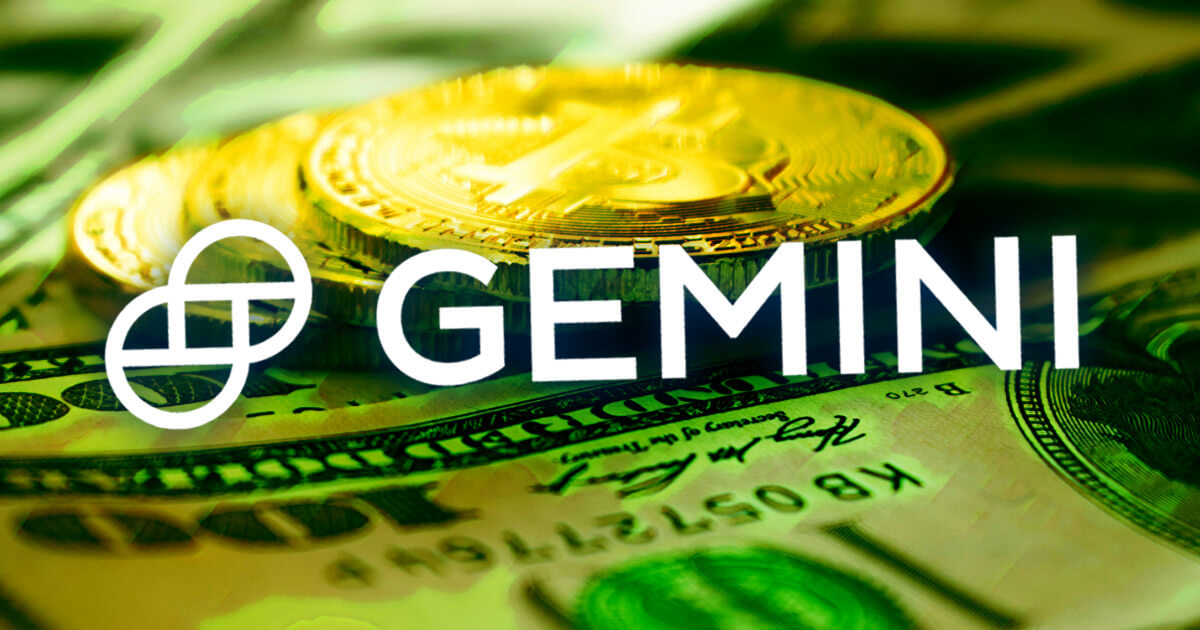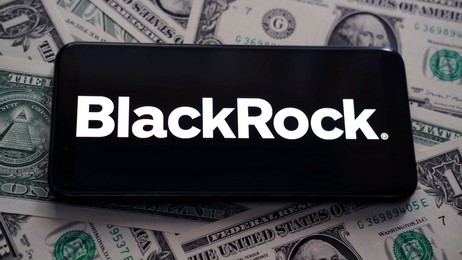Latest News
Ava Labs eyes web3 integration in South Korea’s booming K-Pop industry | MATIC News


Ava Labs, the developer behind the Avalanche blockchain network, is working on introducing web3 technologies to enhance intellectual property management in the rapidly growing K-pop market.
Justin Kim, who leads Ava Labs’ operations in South Korea, discussed the company’s strategic moves to bring blockchain solutions to the forefront of the entertainment sector in an interview with DL News on June 25.
K-pop, known for its massive and dedicated fanbase, is projected to generate substantial revenue from events and merchandise in the coming years. Based on recent research, the market is expected to reach $20 billion by 2031.
Ava Labs aims to tap into this potential by integrating non-fungible tokens (NFTs) and other web3 applications to enhance fan engagement and ensure fair compensation for artists.
Intellectual property management
Kim said the K-pop industry faces significant challenges with financial transparency, as artists often do not receive their fair share of revenue from merchandise and content sales.
Blockchain technology, particularly NFTs, can provide a solution by recording exact sales figures and ensuring transparent transactions. Kim said that Ava Labs has been securing partnerships with South Korea’s major industrial conglomerates, known as “chaebols,” to facilitate the adoption of web3 technologies.
Kim highlighted one notable partnership with SK Group, the country’s third-largest conglomerate, which began collaborating with Ava Labs last year. The partnership focuses on implementing NFT-based ticketing systems for K-pop concerts, leveraging SK Group’s extensive technological infrastructure.
Kim added that collaborating with large, established companies is crucial for retail adoption as these companies already have a substantial user base, which smaller web3 startups often lack.
Kim said using NFTs for K-pop merchandise will allow artists to have a “clear and transparent record of sales” that will ensure appropriate compensation and address a “long-standing issue in the industry.”
Expanding web3 tech
Ava Labs has also invested in Titan Content, a creative studio that blends K-pop with NFTs and other web3 innovations. Titan Content is led by Han Se-min, the former head of SM Entertainment, South Korea’s largest K-pop agency, known for managing popular groups like EXO and NCT.
Additionally, Ava Labs is exploring opportunities in South Korea’s vibrant online gaming market. In March, the company announced plans to bring Nexon’s popular game MapleStory into the crypto space by incorporating NFTs as in-game assets, facilitating easier trading among players.
As Ava Labs continues to expand its presence across Asia, with offices in Japan, Vietnam, and India, the company’s innovative approach to integrating blockchain technology into mainstream industries highlights its commitment to driving digital transformation.
Mentioned in this article
Latest News
Bittensor proposes burning 10% supply to stabilize TAO following $8 million exploit | MATIC News


OpenTensor Foundation (OTF) has proposed burning 10% of the Bitttensor (TAO) supply to stabilize the token’s price in response to a recent exploit that led to the loss of $8 million worth of the tokens.
The decentralized AI network has put forward a vote for users to decide on the burn. Active voters participating in the proposal will be rewarded with compensatory DAO rewards at a later date.
The exploit, which occurred on July 2, saw a Bittensor user lose 32,000 TAO tokens due to a leaked private key. The incident caused an immediate 15% drop in TAO’s price, hitting a six-month low of $227. The price has since rebounded slightly to $240.
Attack timeline
The attack timeline reveals that the incident began on July 2 at 7:06 P.M. UTC when funds started being transferred out of wallets.
OTF detected the abnormal transfer volume and initiated a war room by 7:25 P.M. UTC, and by 7:41 P.M. UTC, the team had neutralized the attack by placing validators behind a firewall and activating safe mode to prevent nodes from connecting to the chain.
During this period, the network was configured to only produce blocks, halting all transactions to prevent further losses and allowing time for a thorough investigation.
The root cause of the attack was traced back to a malicious package in the PyPi Package Manager version 6.12.2, which compromised user security. The package, posing as a legitimate Bittensor package, contained code designed to steal unencrypted coldkey details.
When users downloaded this package and decrypted their coldkeys, the decrypted bytecode was sent to a remote server controlled by the attacker.
The incident prompted an immediate response from the OTF team, which prioritized the security breach over regular updates and maintenance. The disruption has been a significant test for the network, highlighting both its vulnerabilities and the resilience of its infrastructure.
Aftermath
Despite the severity of the attack, some validators, such as RoundTable 21, confirmed that their delegators’ funds remained secure, emphasizing that the exploit did not impact all users uniformly.
However, the decision to halt the chain has led to a debate within the community about its implications for Bittensor’s claim of decentralization. Critics argue that the ability to pause the chain contradicts the principles of a decentralized AI network, while supporters believe it was necessary to protect users’ assets.
OTF plans to gradually resume normal operations of the Bittensor blockchain, ensuring a safe and responsible approach. Regular progress updates will be provided to the community.
As a precaution, users who suspect their wallets were compromised are advised to create new wallets and transfer their funds once the blockchain resumes normal operation. Additionally, upgrading to the latest version of Bittensor is strongly recommended.
Moving forward, Bittensor will implement enhanced package verification processes, increase the frequency of security audits, adopt best practices in public security policies, and improve monitoring and logging of package uploads and downloads.
The proposed token burn and ongoing security enhancements aim to restore confidence in the TAO ecosystem. The outcome of the vote will play a crucial role in stabilizing and securing the network, with the community eagerly awaiting further updates from the developers.
Mentioned in this article
Latest News
Europe’s largest Bitcoin miner Northern Data to launch IPO in the US | MATIC News


Europe’s largest Bitcoin miner, Northern Data AG, has announced plans for a substantial initial public offering (IPO) in the US at a valuation between $10 billion and $16 billion.
The IPO, which will be held on the Nasdaq stock exchange, is scheduled for the first half of 2025 and may also include selling a minority stake to investors prior to the public listing.
Following the IPO announcement, Northern Data’s shares on the XETRA stock exchange surged by over 5%, reaching €25. This positive market reaction indicates strong investor confidence in the company’s future prospects. The firm first considered an IPO in 2021 but decided against it at the time.
The upcoming offering will highlight two of Northern Data’s key business units: Taiga, which handles the company’s cloud computing activities, and Ardent, which manages its data centers. Both units are crucial to Northern Data’s strategy to capitalize on the rapidly expanding AI sector.
The crypto industry continues to face regulatory challenges. Previous attempts by digital asset firms to go public, including Circle, encountered difficulties due to regulatory scrutiny. However, Northern Data’s focus on AI and cloud computing may help it navigate these challenges more effectively.
AI pivot
Originally founded as Northern Bitcoin AG, Northern Data has grown into a significant player in the Bitcoin mining industry. In recent years, the company has diversified its operations to include artificial intelligence (AI) and cloud computing, responding to the decreasing profitability of Bitcoin mining and the growing opportunities in these fields.
In November 2023, Northern Data secured $610 million in debt financing from Tether. The investment is intended to strengthen Northern Data’s AI and cloud computing operations.
The financing followed a strategic partnership between the two companies announced in September 2023. The partnership aimed to focus on AI, peer-to-peer communications, and data storage solutions.
Northern Data’s pivot towards AI and cloud computing reflects a broader industry trend. As the profitability of Bitcoin mining declines, many companies, including Core Scientific and Hut 8 Corp, are exploring new revenue streams.
Committed to Bitcoin mining
While diversifying its business, Northern Data remains committed to Bitcoin mining and plans to continue expanding its footprint in the industry.
Peak Mining, the company’s US-based Bitcoin mining unit, is a significant part of its operations, with nearly 700 megawatts of high-performance computing data centers. In 2023, Peak Mining mined 2,298 BTC, generating over $64 million in revenue despite an 18% year-over-year decrease in production.
Northern Data’s presence in the US has been growing steadily. In May, the company acquired its second 300-megawatt mining site, further solidifying its position in the American market. The expansion highlights Northern Data’s long-term commitment to Bitcoin mining, even as it explores new technological frontiers.
Mentioned in this article
Latest News
Chainlink to handle on-chain NAV for Sygnum’s $50 million tokenized Matter Labs treasury | MATIC News


Fidelity International and Sygnum have partnered with Chainlink to bring Net Asset Value (NAV) data on-chain, as announced on July 3.
This partnership marks showcases the potential advancement through tokenized assets, enhancing transparency and accessibility for fund data. Specifically, it will support Sygnum’s on-chain representation of units of Fidelity International’s $6.9 billion Institutional Liquidity Fund, where $50 million of tokenized Matter Labs’ Treasury reserves issued on the zkSync Blockchain are currently held.
On-chain NAV data
NAV data is crucial in the financial industry as it indicates the price at which investors buy or redeem a fund unit. The financial institution’s partnership with Chainlink would bring this data on-chain, improving the investment experience. The press statement reads:
“With Chainlink, NAV data can be reported and synchronized on-chain accurately, providing real-time transparency and access to historical data for Sygnum, its clients, and market participants.”
Chainlink offers a chain-agnostic system for NAV data dissemination, ensuring secure data delivery across any blockchain or off-chain system.
This integration also meets the core requirements of tokenized assets, enabling cross-chain interoperability and dynamic synchronization to maintain up-to-date programmable assets.
Fatmire Bekiri, Sygnum’s Head of Tokenization, stated that this partnership bridges the gap between traditional finance and the blockchain industry.
This view was also shared by Sergey Nazarov, Chainlink’s co-founder, who noted the rising popularity of fund tokenization. He added:
“The global reach and efficiency benefits of tokenized funds are far greater than traditional methods and will over time become the way the entire asset management industry operates.”
LINK’s institutional adoption rises
The new partnership arrives when institutional interest in Chainlink‘s LINK token is rising.
On July 2, blockchain investigator Lookonchain reported that an institution/whale was accumulating the Oracle network’s native token. According to the analyst, 54 fresh wallets withdrew 2.08 million, worth more than $30 million, from the Binance exchange.
Crypto traders usually interpret exchange withdrawals as a bullish signal that suggests an investor is unwilling to sell and wants to hold the asset for the long term.
However, the move had little impact on LINK’s price, which remained relatively stable the past day, falling by 0.5% to $14.4 as of press time.
Mentioned in this article
-

 Hot Projects4 months ago
Hot Projects4 months agoBitcoin Blasts Past $70,000 to Register New All-Time High | MATIC News
-

 Latest News4 months ago
Latest News4 months agoCourt upholds SEC’s unregistered securities claims against Gemini, Genesis’ Earn program | MATIC News
-
Hot Projects2 months ago
Bitcoin Will Be Set For New ATHs If It Breaks This Resistance: Analyst | MATIC News
-

 Latest News2 months ago
Latest News2 months agoSix Coinbase customers claim the exchange is violating securities laws in new lawsuit | MATIC News
-

 Hot Projects3 months ago
Hot Projects3 months agoBitcoin ETF Inflows Could Eclipse $1 Trillion, Predicts Bitwise CIO | MATIC News
-

 Hot Projects3 months ago
Hot Projects3 months agoOndo Finance Joins BlackRock Tokenized Fund As Inflows Surpass $160M | MATIC News
-

 Latest News4 months ago
Latest News4 months agoOver $1 billion wiped off HEX’s valuation following Richard Heart’s disparaging remarks | MATIC News
-

 Latest News2 months ago
Latest News2 months agoNew Hampshire representative proposes Bitcoin ETF investment to address state financial liabilities | MATIC News


